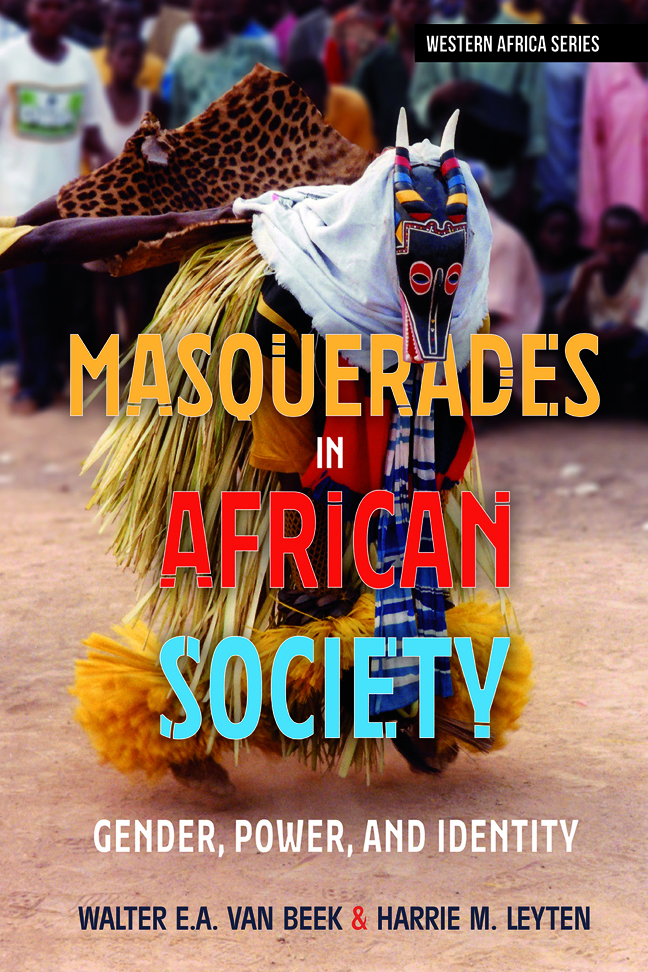Book contents
- Frontmatter
- Dedication
- Contents
- List of Illustrations
- Acknowledgements
- Introduction
- The Mask Crescent: Distribution of Masks and Masking in Africa
- 1 Mask Distribution and Theory
- 2 What is a Mask?
- 3 Masks and Masculinity: Initiation
- 4 Secrecy and Power
- 5 Death and its Masks
- 6 Women: Pivot of the Masks
- 7 Masks and Politics
- 8 Masks and the Order of Things
- 9 Masks and Modernity
- 10 Memories of Power, Power of Memories
- 11 Conclusion
- Bibliography
- Sources for Ethnographic Cases
- Picture Credits
- Index
9 - Masks and Modernity
Published online by Cambridge University Press: 22 February 2024
- Frontmatter
- Dedication
- Contents
- List of Illustrations
- Acknowledgements
- Introduction
- The Mask Crescent: Distribution of Masks and Masking in Africa
- 1 Mask Distribution and Theory
- 2 What is a Mask?
- 3 Masks and Masculinity: Initiation
- 4 Secrecy and Power
- 5 Death and its Masks
- 6 Women: Pivot of the Masks
- 7 Masks and Politics
- 8 Masks and the Order of Things
- 9 Masks and Modernity
- 10 Memories of Power, Power of Memories
- 11 Conclusion
- Bibliography
- Sources for Ethnographic Cases
- Picture Credits
- Index
Summary
‘The mystery of the world is the visible, not the invisible.’
(Oscar Wilde, The Picture of Dorian Gray 29)Playful sharks in the Delta
The Ijo group in the Niger Delta have a masking myth that tells of Kperighada, a fisherman. He wanted to explore new fishing waters far from home, so he joined other fishermen in an expedition all the way to Cameroon. There, suddenly, he disappeared, and his colleagues were unable to trace him. After seven days he reappeared. Asked about his experiences, Kperighada told them that he had been kidnapped by water spirits and taken to their underwater world, where he was taught how to dance a masquerade. Back home in his village he called all the elders of his town together and told them he would die if they did not accept the masquerade called ofurumo (shark). The elders agreed and since then the shark masquerade is performed in all Ijo towns.
In this origin story the usual female protagonist is lacking, but also the ritual itself has special characteristics. A mask with a mullet headpiece runs through the village as his assistants sing: ‘Sharks are coming! Run and hide!’ Villagers hasten to the riverside to watch a canoe tow a raft with the shark mask upriver, while crew members and supporters sing and drum his praise. The mask carries a large horizontal headpiece in the form of a shark, and has a costume made of head ties, wrappers, and trousers. A man and his wife circle the raft in a canoe as if they are stalking their prey. When the man throws his spear, the canoe capsizes and the pair end up in the water. This refers to a well-known song: ‘Anyone who spears this fish will upset his canoe.’ On land all start to dance, and the drummers accompany the mask with songs, such as ‘Force someone to give him food’ and ‘To remove all the fish and give fishless soup to one's husband’, songs criticising antisocial behaviour. The masquerade ends with a pantomime in which the fishing couple reappear, dragging their canoe around as if they are still paddling and chasing their prey, even occasionally pretending to capsize. Finally, the fisherman spears ofurumo and hauls him into his canoe, where he ‘kills’ the spirit.
What is special here is the light tone of the performance.
- Type
- Chapter
- Information
- Masquerades in African SocietyGender, Power and Identity, pp. 283 - 308Publisher: Boydell & BrewerPrint publication year: 2023

